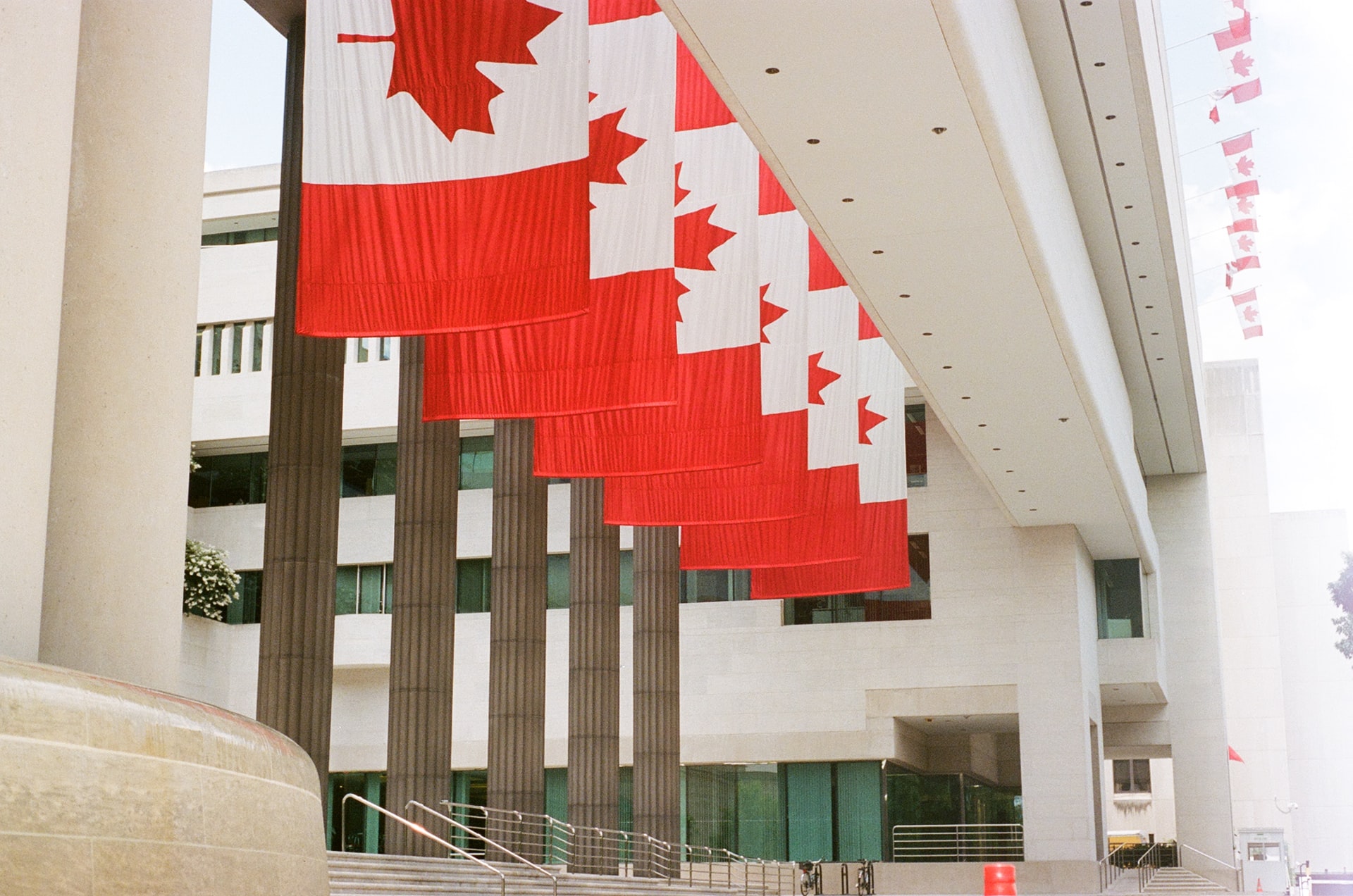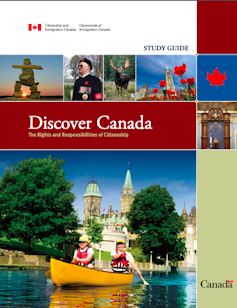Canada News
Canadian citizenship study guide should tell the truth about racism

Issued in 2011, the guide aims to teach prospective citizens about Canada’s history, geography, culture, and political and justice systems. Disgracefully, the document whitewashes colonialism, conceals genocide, minimizes systemic racism and its inhumane consequences, and portrays these as remnants of the past even as the guide itself engages in racist discourse. (File photo: Sasan Hezarkhani/Unsplash)
At this crucial time of confronting systemic anti-Black and anti-Indigenous racism, the Canadian government must take responsibility for its enduring role in propagating racism. This includes through its misleading self-portrayal in Discover Canada, the official study guide for the test taken by Canadian citizenship applicants.
Issued in 2011, the guide aims to teach prospective citizens about Canada’s history, geography, culture, and political and justice systems. Disgracefully, the document whitewashes colonialism, conceals genocide, minimizes systemic racism and its inhumane consequences, and portrays these as remnants of the past even as the guide itself engages in racist discourse.
We write as women faculty members at the Dalla Lana School of Public Health, University of Toronto. Our perspective on these issues is borne of our shared concerns yet differing relationships to “Canadian” nationality. One of us is Algonquin (Timiskaming First Nation); another is a woman of African ancestry, born in “Canada,” surviving transatlantic enslavement; two are new-ish Canadians (white European heritage, from the United States and South Africa); another is a permanent resident from the U.S. (from Venezuela).
Revising the guide
Recognizing Discover Canada’s flaws, the government set out in 2016 to remove certain offensive elements, including the portrayal of immigrants’ “barbaric cultural practices” and the glorification of military exploits.
A draft shared with The Canadian Press in 2017 incorporated coverage of the Truth and Reconciliation Commission’s 2015 report, as well as discussion of discrimination against people of racialized backgrounds, people with disabilities, LGBTQ2S+ people and other marginalized communities.
Despite an expected 2017 release — during Canada’s sesquicentennial — the new version, inexplicably, never came to light.
Citizen shame

Outrageously, Discover Canada is still the welcome guide for new Canadians. Just a few of its shameful elements include:
1) It presents a sanitized account of Indigenous Peoples, before and under colonization. This erases the history and legacy of stolen lands and dispossession, the upheaval of nations, cultural genocide, broken treaties, assimilation policies such as residential schools, police and carceral racism, continued heinous living conditions on reserves and hugely inequitable health outcomes.
From the Royal Proclamation of 1763, which states Indigenous people are sovereign, to the British North America Act of 1867, there is no discussion of how the Doctrine of Discovery shaped the nation. Discover Canada also omits Indigenous people’s resistance movements, past and present, that contest historical and ongoing forms of colonialism and oppression.
2) The guide celebrates Upper Canada as “the first province in the Empire to move toward abolition” and as a “safe haven” for enslaved Black people escaping the United States, but there is no mention of Canada’s own history of slavery, nor of the pervasive racist violence and human rights violations faced by African and Black Canadians. The guide’s omission of the Code Noir (1685, revised in 1789) further erases the reality of policed and enslaved African lives, which included forced religious conversion, sanctioned punishment and other brutalities.
This legacy, combined with successor policies, has generated over-representation of Black and Indigenous children in foster care and Children’s Aid facilities and high rates of educational, food and housing insecurity, all generating worse health outcomes among Black Canadians.
Likewise, anti-Asian racism is covered only superficially. The horrendous Komagata Maru event is entirely overlooked. The internment of Japanese Canadians during the Second World War is discussed fleetingly, with no mention of numbers affected (over 22,000), uncompensated liquidation of property, family separation or forced postwar relocation.
The guide flags government apologies but not the racist ideologies and practices justifying such policies. This is the case with anti-Chinese discrimination, including the “Head Tax, a race-based entry fee,” and more recently witnessed in hateful attacks on Asian Canadians during both the SARS and COVID-19 pandemics.
3) Amid overwhelming, longstanding evidence of systemic police brutality targeting racialized communities, the guide’s use of the phrase, “Remember, the police are there to help you.” contradicts the everyday reality of policing for Black, brown and Indigenous peoples. This includes: repeated instances of violence, racial profiling and harassment against Black and Indigenous communities; the RCMP’s complicity in missing and murdered Indigenous women and girls; and grossly disproportional incarceration of Black and Indigenous populations.
4) In discussing the 1982 Charter of Rights and Freedoms, the guide is highly selective regarding which rights are acknowledged and emphasized. While the guide repeatedly stresses the importance of religious freedom, it fails to mention equality and non-discrimination as fundamental rights. This selective presentation of key human rights protections gives prospective citizens a distorted picture of the rights afforded to Canadians.
The guide also misses the opportunity to endorse key human rights protections against racism, which are central to mitigating the effects of systemic discrimination on people’s well-being, financial security, education and work aspirations.
Additionally ignored are past and contemporary policies that undermine the rights of racialized migrant workers. Examples of these groups include Black migrants, who historically were only admitted as domestic workers or in other menial roles; Filipino workers recruited to be home care aides and personal support workers; and Latin American and Caribbean migrant farm workers today. Racialized migrants are frequently denied landed immigrant status, family reunification, provincial health coverage, unemployment benefits, workplace protections and other social entitlements and worker protections.
An honest guide?
In sum, a replacement citizenship guide is long overdue. A new guide should certainly further highlight working-class struggles pushing Canada’s efforts in realizing rights to health, education and social security, including the role of old age security pensions in reducing poverty among seniors.
Even so, these measures have been markedly scaled back in recent years, with resultant increases in poverty. They have never fully addressed racial, class and gender inequities.
A new citizenship guide must also acknowledge ongoing patterns of institutional oppression if we are to begin to address them. Building on resources such as the Truth and Reconciliation Commission and the Canadian Human Rights Tribunal’s rulings, a revised citizenship guide should reaffirm the importance of respecting everyone’s human rights as outlined in the Charter.
We urge the federal government to issue a new citizenship guide that accurately reflects the past and recognizes current challenges of redressing systemic racism and pervasive social and economic inequalities. This is a pivotal first step in ensuring dignified futures for new Canadians, and building a society that truly fosters equity, human rights, and social, economic and cultural respect.![]()
Anne-Emanuelle Birn, Professor of Critical Development Studies & Social and Behavioural Health Sciences, University of Toronto; Amaya Perez-Brumer, Assistant Professor, Dalla Lana School of Public Health, University of Toronto; Angela Mashford-Pringle, Assistant Professor/Associate Director, Waakebiness-Bryce Institute for Indigenous Health, University of Toronto; Lisa Forman, Associate Professor, Canada Research Chair in Human Rights and Global Health Equity, Dalla Lana School of Public Health, University of Toronto, and Roberta K. Timothy, Assistant Professor, Teaching Stream, Social and Behavioural Health Science, Dalla Lana School of Public Health, University of Toronto
This article is republished from The Conversation under a Creative Commons license. Read the original article.





















